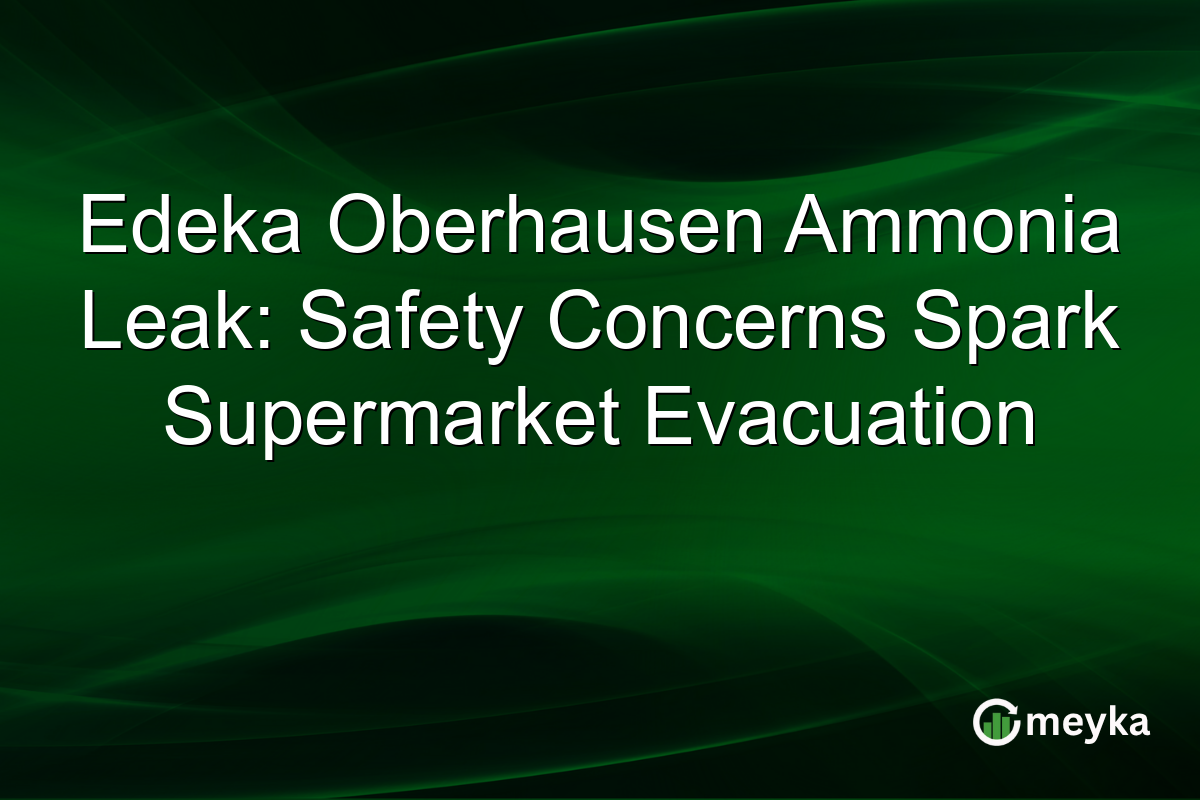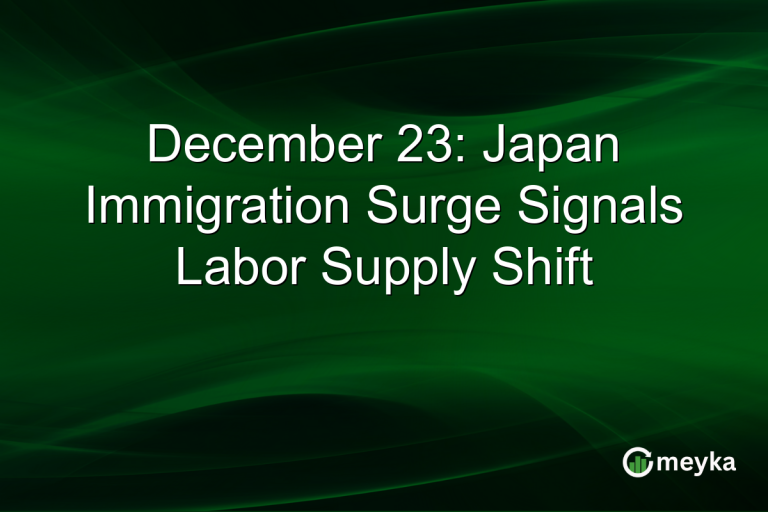Edeka Oberhausen Ammonia Leak: Safety Concerns Spark Supermarket Evacuation
Today, an ammonia leak at Edeka Oberhausen prompted a swift evacuation, drawing serious attention to refrigerant safety in Germany’s retail sector. This incident underscores the need to review compliance and safety protocols. As industrial accidents rise in frequency, the safety practices of supermarkets are under greater scrutiny.
The Incident and Immediate Response
An ammonia leak at the Edeka supermarket in Oberhausen caused alarm as hazardous materials were released into the air. Officials quickly evacuated the store to ensure public safety. Ammonia, commonly used in industrial refrigeration, poses significant health risks if inhaled. This incident prompted authorities to investigate the safety protocols of commercial food retailers. Read more on CNBC. The swift response from emergency services highlights the critical need for effective procedures when dealing with industrial refrigerant accidents. Local fire departments and hazardous material teams contained the leak, mitigating further risks. This shows how preparedness and efficient action can prevent severe outcomes in such emergencies.
Regulatory Compliance and Safety Practices
The Edeka Oberhausen ammonia leak raises questions about regulatory compliance in Germany. The use of ammonia as an industrial refrigerant is common, but it requires strict adherence to safety regulations. The increasing number of industrial accidents prompts a fresh look at enforcing compliance. Retailers must regularly assess their systems to prevent leaks. Failure to follow safety protocols not only endangers lives but also has legal consequences. This type of supermarket evacuation in Germany highlights the need for industry-wide reform focusing on preventive measures.
Impact on Public Perception and Industry Standards
Public perception is crucial for businesses like Edeka. Incidents involving hazardous materials can lead to consumer distrust, affecting business performance. To restore confidence, supermarkets must transparently communicate their safety practices. Industry standards might shift as regulators push for stricter guidelines. Retailers could face pressure to upgrade their refrigerant systems and maintain comprehensive safety checklists. This could lead to increased costs but ultimately ensures consumer safety and organizational accountability. Discussions on Bloomberg suggest such incidents could reshape safety norms in shopping environments.
Final Thoughts
The Edeka Oberhausen ammonia leak acts as a stark reminder of the risks associated with industrial refrigerants. This incident not only prompted immediate safety actions but also ignited a discussion about industry standards. Retailers must prioritize safety to enhance consumer trust. Regulators and businesses alike must collaborate to ensure compliance and improve safety measures. By taking proactive steps, the industry can prevent future incidents, safeguard the public, and maintain a trustworthy retail environment.
FAQs
The cause is under investigation. It’s linked to the refrigeration systems that use ammonia, which is hazardous if released, highlighting maintenance and safety issues.
The supermarket was evacuated to ensure public safety after ammonia, a toxic refrigerant, was released into the air. Evacuation is a standard safety measure in such incidents.
Ammonia can cause respiratory issues and irritation to the eyes and skin. High-level exposure can lead to severe health complications, necessitating immediate safety measures.
The incident could pressure regulators to enforce stricter safety norms and require supermarkets to upgrade their refrigerant systems, enhancing overall safety.
Regular system checks, staff training on emergency responses, and adherence to safety regulations can mitigate risks and improve safety in retail environments.
Disclaimer:
This is for information only, not financial advice. Always do your research.






